People

Margaret (Maggi) Mars Brisbin (she/her) is the PI of the MICOlab and an Assistant Professor at the University of South Florida’s College of Marine Science. Maggi completed her Ph.D. at the Okinawa Institute of Science and Technology (Japan), where she worked under Prof. Satoshi Mitarai to comprehensively characterize the symbiosis between acantharian protists and the Haptophyte phytoplankton Phaeocystis. Side projects and ongoing interests from Okinawa include investigating how typhoons and urbanization disturb coastal ecosystems. Recent research focuses on positive and negative interactions between Phaeocystis and their colony microbiomes, and the impact these interactions may have on bloom formation in different regions. Maggi is passionate about science communication, outreach, and building an inclusive and supportive lab.



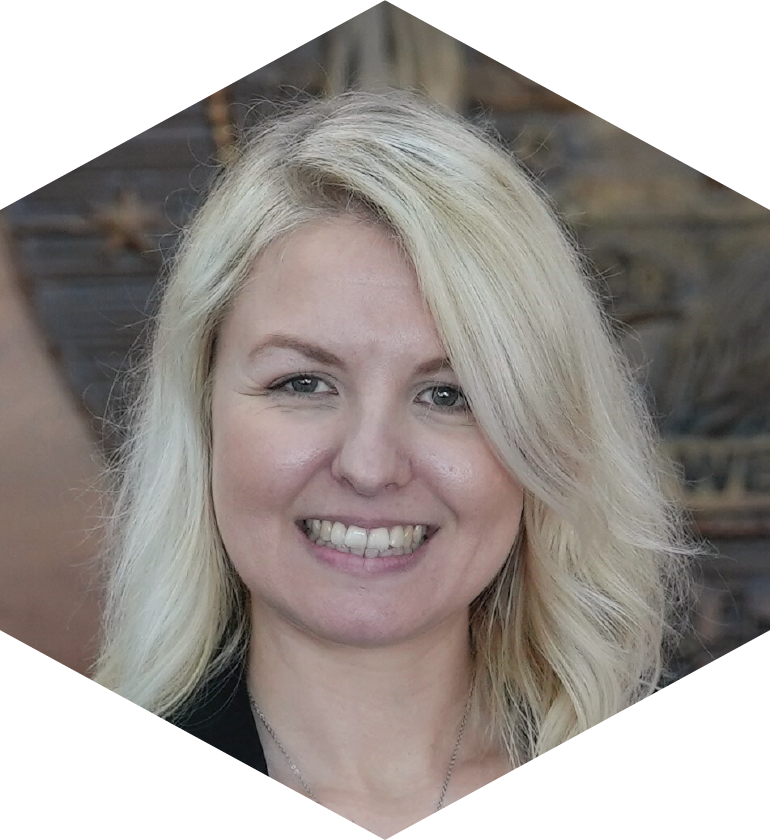
Amanda Muni-Morgan is a Postdoctoral Research Scientist who joined the MICOlab in November of 2024. She began her scientific career managing the Red Tide Institute at Mote Marine Laboratory under the guidance of Dr. Cynthia Heil. There, she developed a passion for water quality and harmful algae and later completed her Ph.D. at the University of Florida under the guidance of Dr. Mary Lusk. Her research investigated how dissolved organic matter (DOM) compounds originating from urban environs (i.e., stormwater runoff, atmospheric deposition, wastewater) influence the growth of the toxic dinoflagellate species Karenia brevis and Pyrodinium bahamense. Her current research aims to constrain how DOM composition changes across the land-ocean continuum in response to human activities or environmental stressors (i.e., pollution, climate change), and how those changes influence water quality. This work is driven by the hypothesis that urban land-use alters the flux and composition of DOM, and elucidating receiving water impacts can guide best management practices.
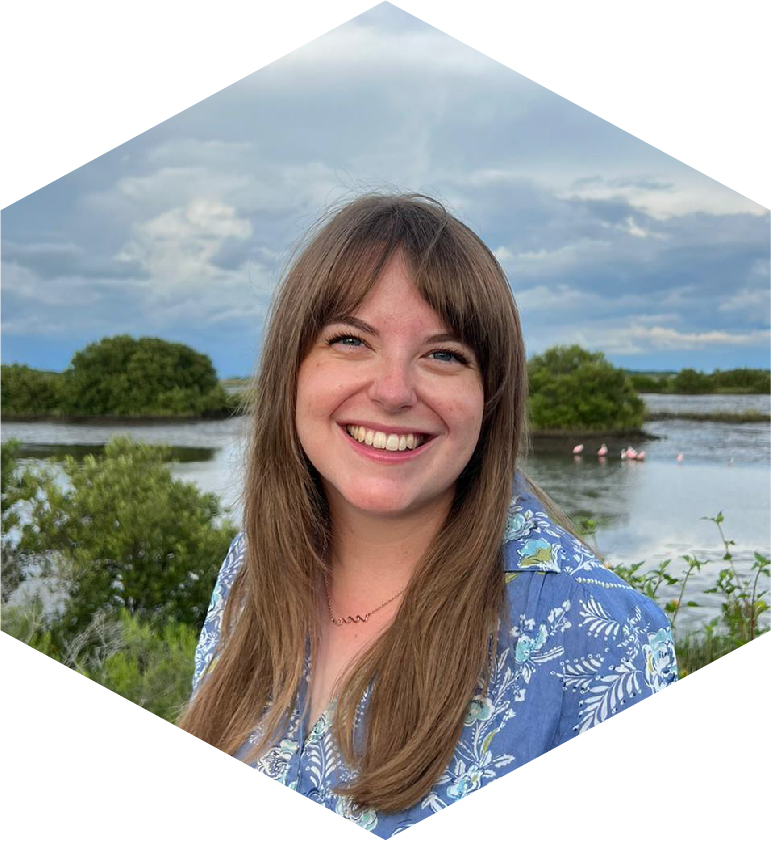
Olivia Blondheim transferred to the MICOlab in Fall 2024 to complete her dissertation research. Her project focuses on the water filtration services of the eastern oyster in Tampa Bay. She is measuring the water filtration rates of oysters on both natural (i.e., oyster reefs) and artificial (i.e., mangrove prop roots, vertical oyster gardens) substrates. She is also experimentally evaluating whether oysters can diminish the severity of harmful algal blooms in warming ocean conditions. When Olivia is not in the lab or the field, you can usually find her assembling vertical oyster gardens with the community at outreach events, advocating for sustainable aquaculture in D.C., or photographing wildlife at one of her favorite local parks.
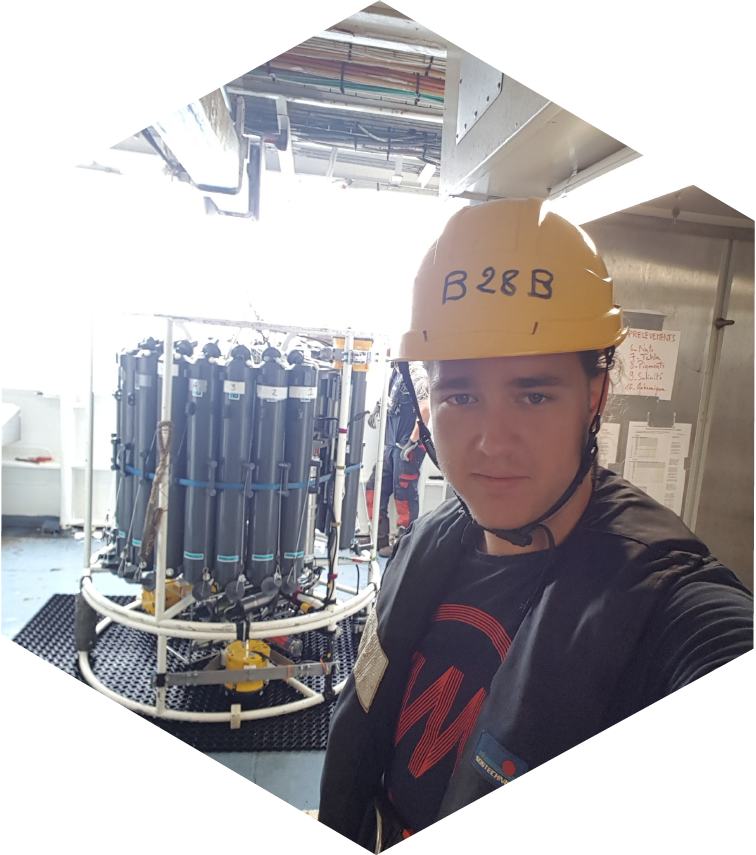
Andreas Norlin joined the MICOlab as a Ph.D. student in the Fall 2023. He is interested in studying mixotrophic protists and has a particular interest in studying various forms of symbiosis, especially between phototrophic and heterotrophic partners, a fascination arising from working with Radiolaria and the green variant of Noctiluca scintillans. After finishing his M.Sc. in Marine Biology from the University of Copenhagen, Denmark, he became increasingly interested in a more mathematical approach to biology, through the use of mathematical and statistical models to learn about the interactions between organisms and the environment. Combining laboratory and field experiments with computer models and simulations to solve the mysteries of the natural world continues to be a main driver for his work.

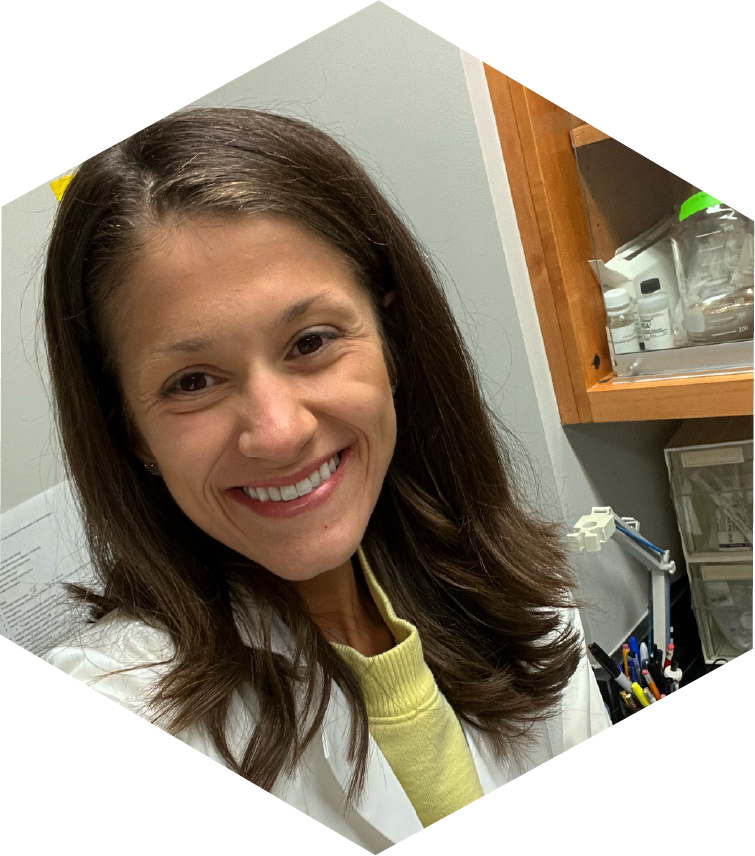
Lydia Ruggles joined the MICOlab as an M.Sc. student in the Fall of 2023. She is interested in understanding the relationship between the saxitoxin-producing species Pyrodinium bahamense and bacteria. This interest began through her work at the Florida Fish and Wildlife Research Institute in the Harmful Algal Bloom group, where she continues to assist with physiological and molecular research.



Lauren D’Amore is a Senior Marine Biology major at USF St. Pete. She joined the MICOlab in the spring of 2024. Originally from Wisconsin, she moved down to Florida to pursue a degree in marine biology at USF. Her interests lie in understanding the functions of the microorganisms that play a vital role in the health of our ocean’s ecosystems. Lauren is currently assisting with ongoing projects and is becoming an expert in molecular biology, phytoplankton culturing, and flow cytometry.

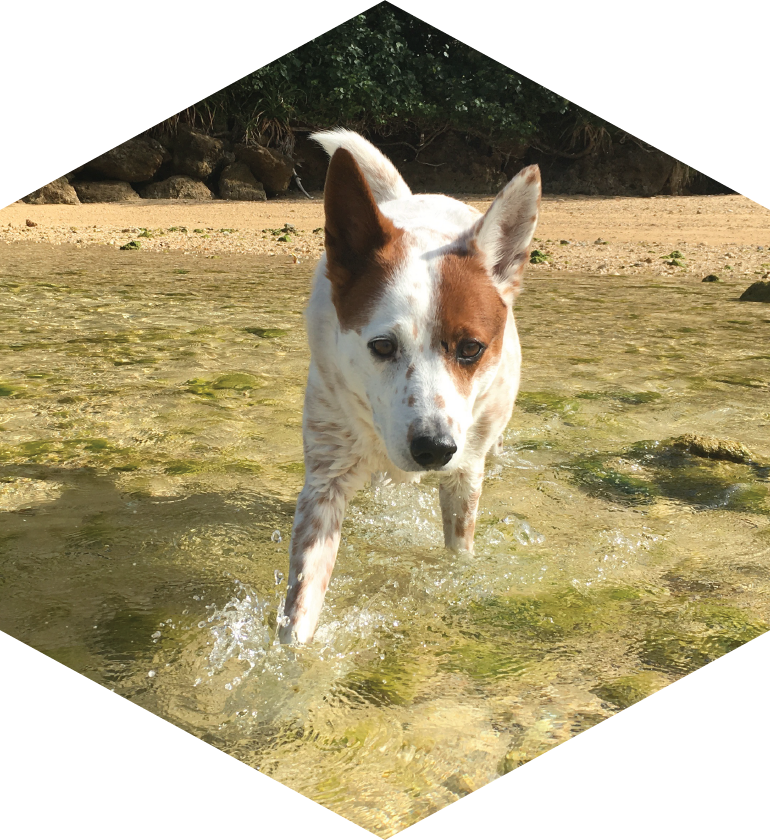
Gnasher Brisbin is a 13-year-old Australian Cattle Dog (Red Heeler) who is deeply interested in reef fish and sea cucumbers. He is currently studying the effect of loud noises (barking) on prey fish behavior. In his spare time, he enjoys sun bathing, walking, sleeping, and eating. He is the number one supporter of MICOlab publications being written.
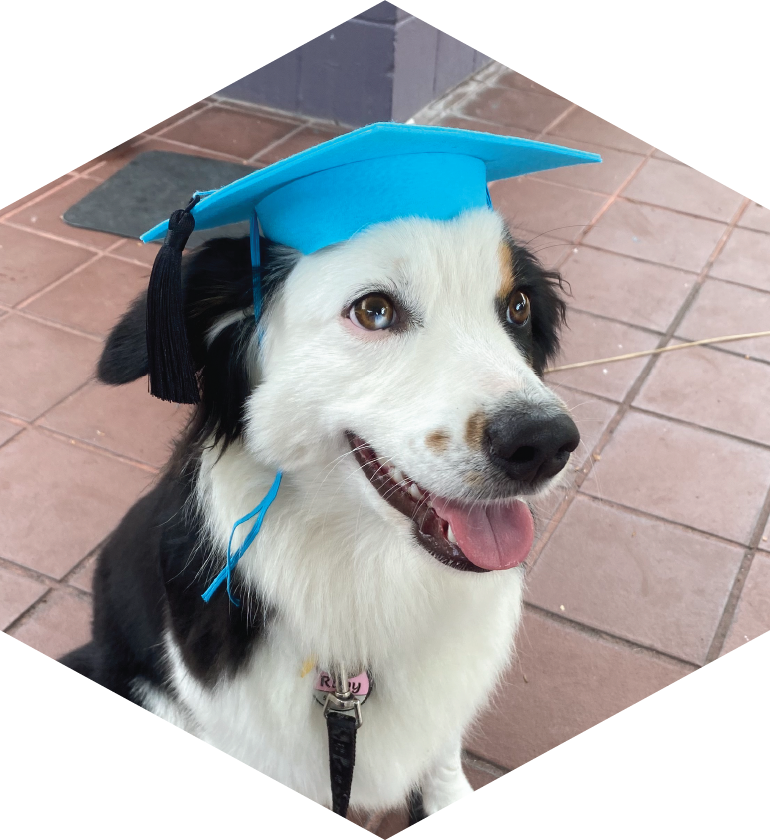
Ruby Brisbin is a mini American Shepherd (a.k.a. mini Aussie) puppy and recent addition to the MICOlab. She is still developing her academic interests, but is leaning towards terrestrial ecology as she is especially interested in the activity of native and invasive anoles in Florida. In her free time, she enjoys sailing, walking, running, jumping, and Frisbee.
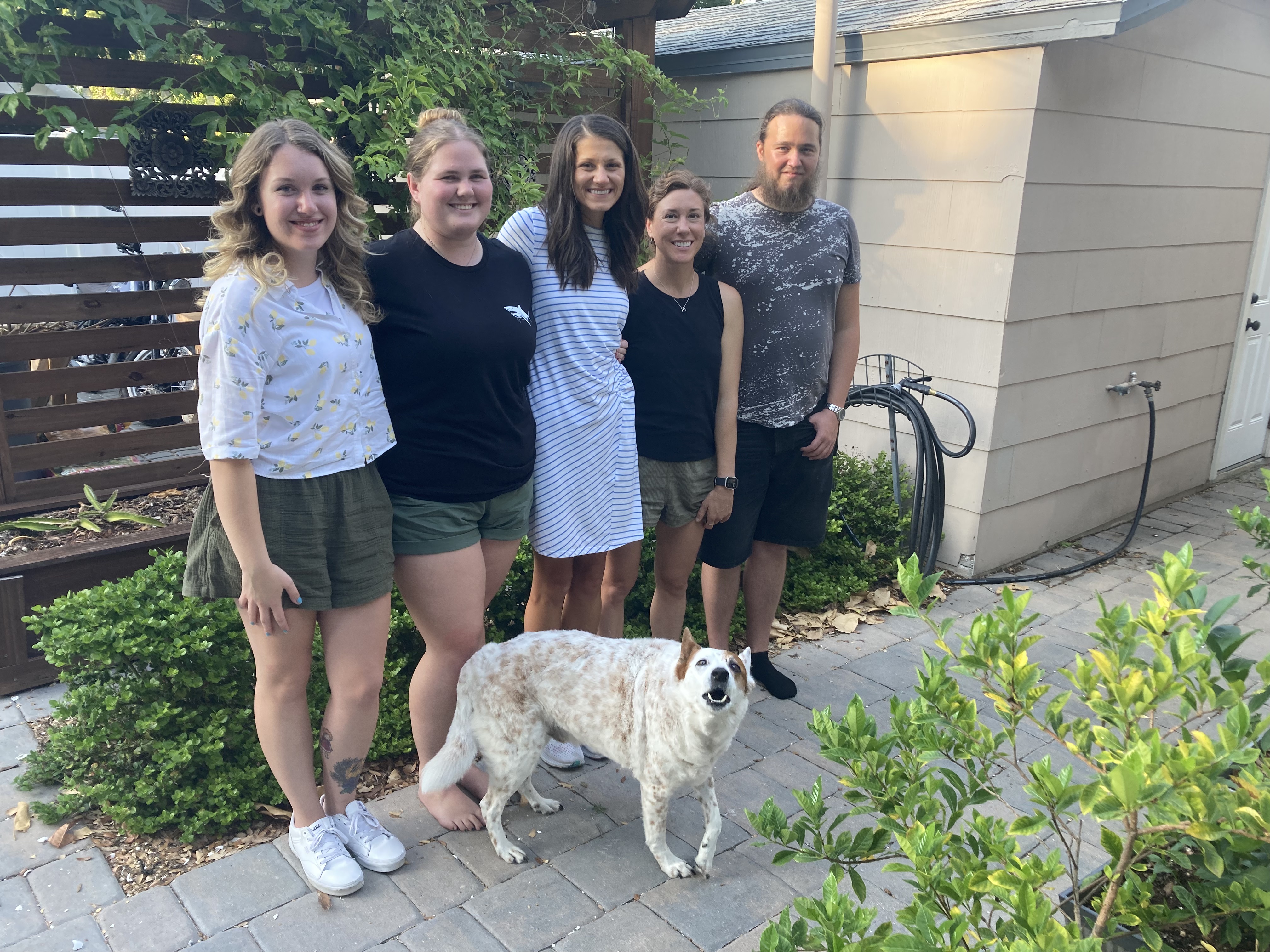
2024 End of the Year BBQ. Clockwise from top left: Lauren, Abbey, Lydia, Maggi, Andreas, Gnasher.
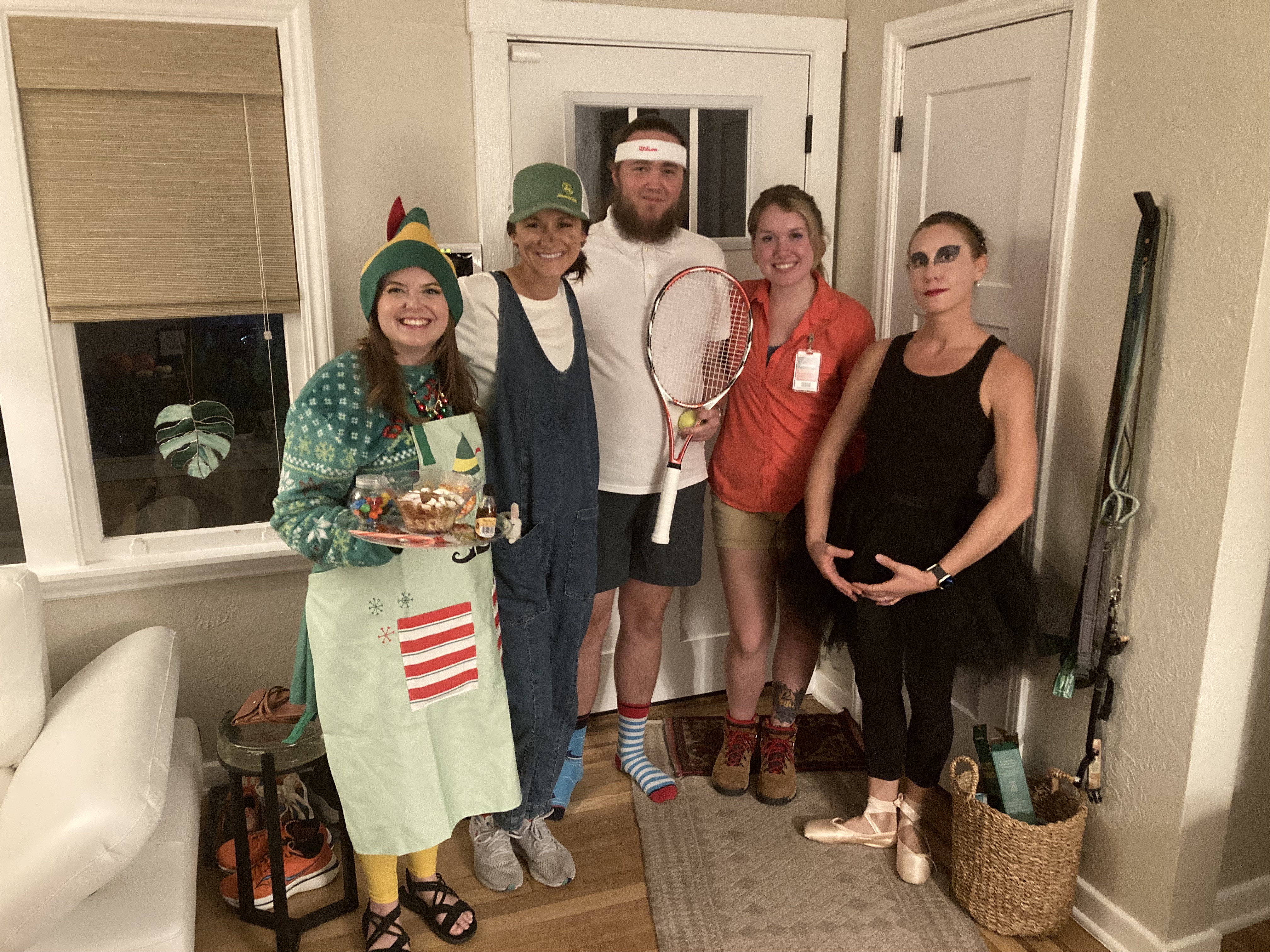
2024 Halloween Party. From left: Elf (Olivia), Farmer (Lydia), Tennis Pro (Andreas), Jurassic Park’s Dr. Ellie Sattler (Lauren), Black Swan (Maggi).
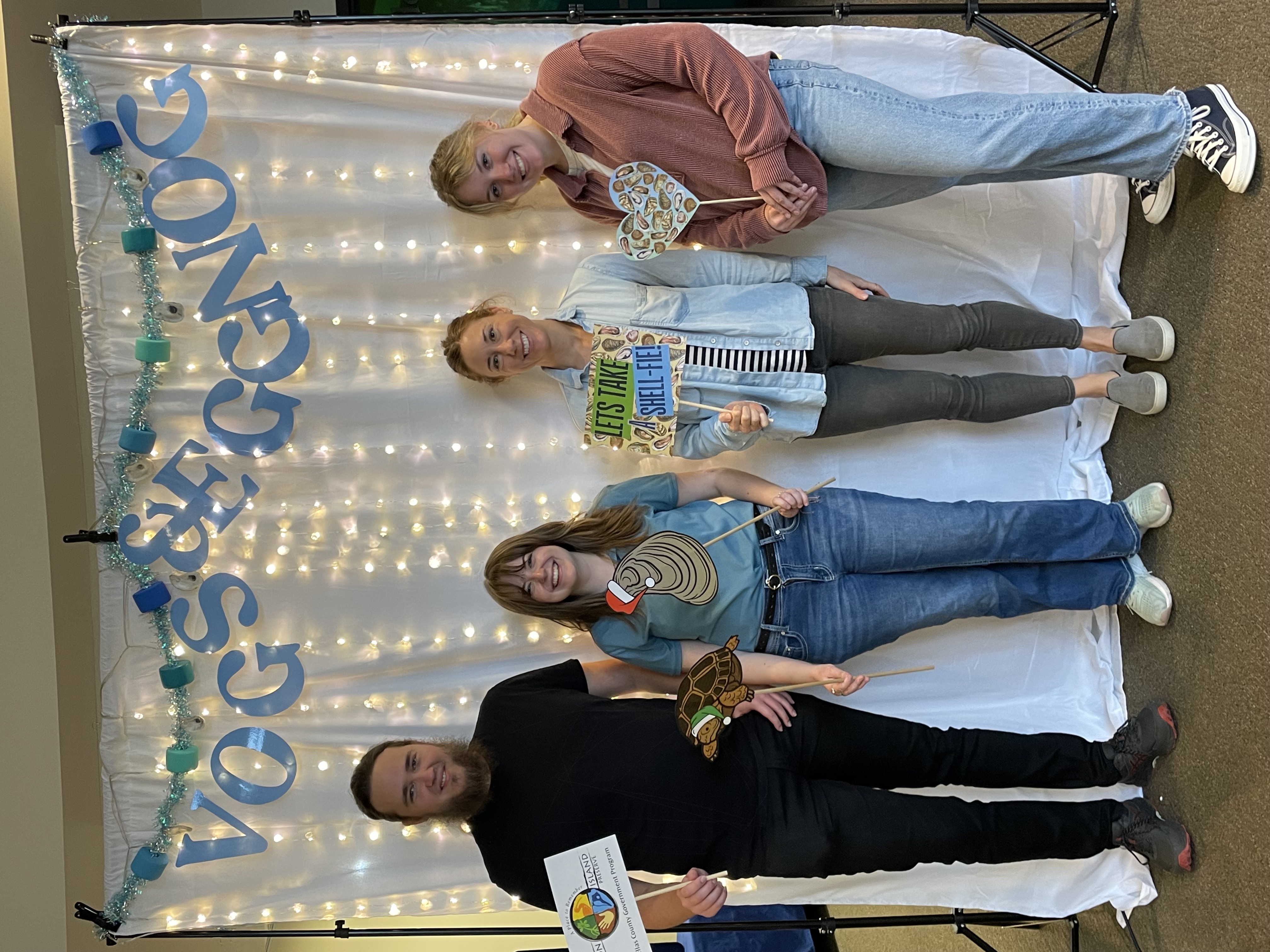
2024 VOGs and Egg Nog outreach event planned and executed by Olivia. From left: Andreas, Olivia, Maggi, Lauren.